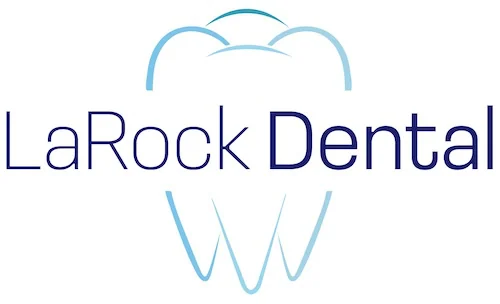Periodontal Disease Treatment

Your teeth aren’t the only part of your mouth that we’re concerned about at our dental practice. The gums supporting your teeth are just as important and prone to damage. Even people committed to brushing twice a day and flossing like clockwork are at risk of developing periodontal disease. Also called periodontitis, this gum disease can have serious and long-term consequences.
We focus on finding the earliest signs of this problem here at LaRock Dental so that we can help you avoid the more serious side effects. With a commitment to dental hygiene and routine visits for deep cleaning, you should be able to avoid gum disease altogether. But if it does develop, let us help reverse the damage and maintain your overall health starting in the mouth.
What Are the Long-Term Effects of Periodontal Disease?
The very first signs of periodontal disease include reddening around the edges of the gum tissue and bleeding when you brush your teeth. If you don’t address the problem at that stage, you may develop a wide range of more serious side effects. Gum disease can cause widespread recession of the gum tissue, forming pockets around the roots of the teeth.
As the roots become exposed and damaged, entire teeth are often lost. In addition to potentially leading to tooth loss, periodontal disease can damage the jaw and negatively affect your overall health until it’s treated. Waiting until that occurs reduces the chances of successful reversal, but our team will always work hard to stop the damage and save as many teeth as possible. Early treatment will minimize the long-term effects as long as you commit to keeping up with your dental hygiene.
What Are the Four Stages of Gum Disease?
Gingivitis is the very first stage of periodontal disease. It’s best to catch gum problems at this stage and begin treatment early to control the damage and protect your teeth. Marked by just a little extra plaque building up on the teeth, it’s likely to cause symptoms like slight irritation of the gum edges and redness.
Once the disease moves into slight periodontal disease, it technically cannot be reversed. However, it can be controlled with regular treatment from our dental team. Gum tissue will visibly recede, exposing some of the tooth. Bleeding, bad breath and increased swelling are all signs of this stage of the disease.
Next is moderate periodontal disease. Scaling and root planing will be needed at these stages to stage the damage from worsening. This cleans away the plaque that’s allowing infection to spread below the gum line. Symptoms will remain largely the same but pockets in the gum tissue will be deeper during exams.
At the final stage of periodontal disease, pain and loose teeth are likely. Your chewing ability may be disrupted, making you avoid your favorite foods. Treatment is still helpful at this stage, so don’t avoid the dentist out of shame or fear. Getting the infection under control and assessing what can be done for the most affected teeth will get you back on track towards a healthy smile.
How Can LaRock Dental Help?
Once you’re diagnosed with periodontal disease, you’ll need to visit our office more often than just every six months. Staying on top of extra cleanings and treatments like scaling or planing will keep the disease from progressing. Make an appointment with Dr. LaRock today if you suspect you may have signs of gum disease.
Request An Appointment Today
If you’re looking for compassionate and quality dental care in Manchester, MI, you can rely on LaRock Dental and the caring team under Dr. LaRock.
Testimonials
We Love Hearing From Our Patients

Front desk staff, dental hygienist and doctors were pleasant and professional.
– Gerald M.

“My hygienist was amazing and dentist was excellent. Highly recommend!”
– Brent L.

“Great small town practice with a caring staff.”
– Michael B.
 126 East Main Street Manchester, MI 48158
126 East Main Street Manchester, MI 48158 734-428-8323
734-428-8323
